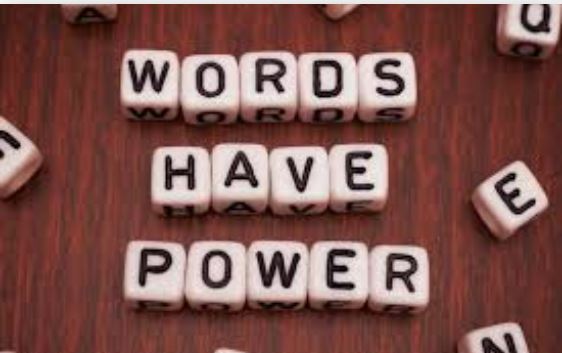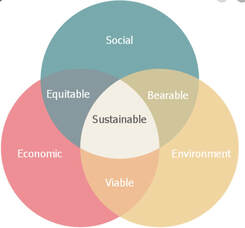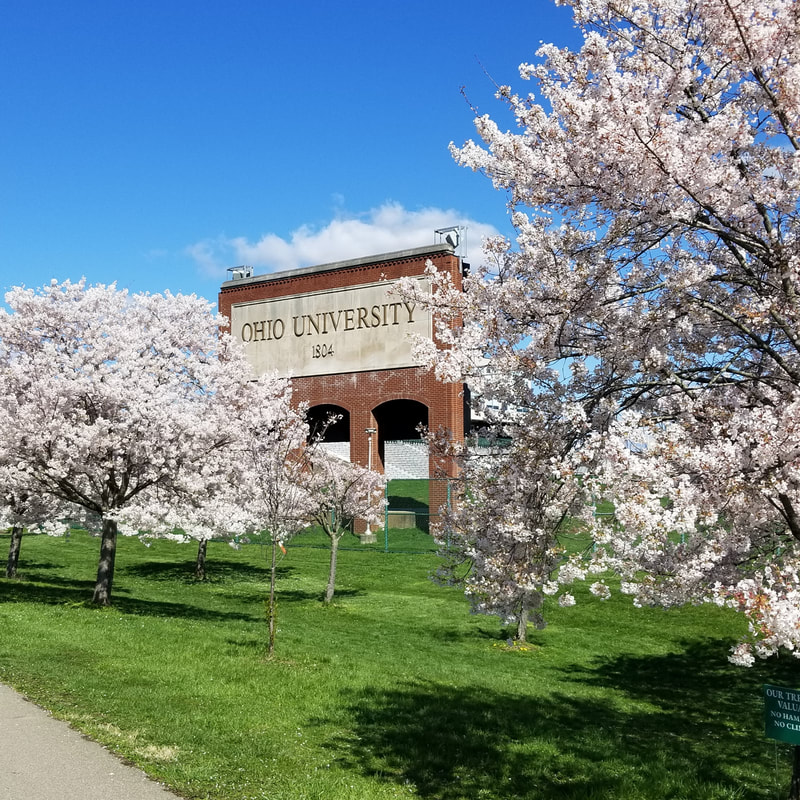The blessing and curse of the English language is the multitude of choices, the sheer magnitude of the word bank. My favorite professor at Wilkes University said that there was an expression for almost everything—if you had the right vocabulary. There is a powerful sense of control when you can say exactly what you mean. I remember specific instances I learned that two words were not interchangeable. For instance, one might feel anxious but not nervous. A statistic can be accurate but not precise (and vice versa). If you start a sentence with due to, since, or because, you will mean three different things. You have less water but fewer bottles of water. OK, I’ll stop there.
Proposal 1: Let’s replace the term Social Distancing with Physical Distancing. If, like me, you are fortunate enough to be social distancing, I advance that you are not actually social distancing. Think about it. If you have access to Wi-Fi and a smart device, have you been socially distant from people this spring? Or have you been physically distant? All of the interactions that I listed above were virtual, but they have certainly been social. Consider some definitions of social: “Related to activities in which people meet each other for pleasure” and “An informal gathering organized by members of a particular group.” To me this sounds like most of the interactions I have had. Further, I’ve been connected to people I do not normally interact with. I’m chatting online with friends every other week that I normally see once a year. Case in point. Over its 15-year history, how many times has my fantasy football league done a video-chat? Twice. And they’ve both been in the last month. The point may be that if we are lucky enough to be able to remain physically distant—but connected—we should embrace it. There are lot of people who do not have the ability to practice physical distancing. Essential employees in hospitals, food delivery, the postal service, etc., are quite literally not able to. Their work brings them in close physical proximity with people whether they want to or not. I would argue that these individuals might actually be the only ones unintentionally having to practice social distancing. Given the long hours and exhaustion, these frontline workers are more likely to be worn out when they finally do get home, leaving less personal time to connect with friends and loved ones (even remotely). So when we are having a virtual cocktail with some friends in a Zoom meeting, I propose a new norm: are engaging in physical distancing—not social distancing. Proposal 2: Let’s replace Self-Isolation with Social-Solidarity. Quick, How many Facebook friends you have? How many Instagram followers? I’m guessing it is a huge community of people. Now, do you feel isolated from them? Do you feel deserted by or detached from them? Or do you feel like you have a common interest, a mutual goal, a feeling of unity and harmony with these people? If the latter, I suggest you are not isolated from them but rather than you are in solidarity with them. Again for those of us physically staying at home, we are working together to accomplish a shared objective. Sure, we are acting alone, but we are not in self-isolation; we are acting in social solidarity for the collective good. Words are important tools, and the ability to properly employ them is a hallmark of our species. In fact, some anthropologists suggest language is what first defined mankind as we think of it today. Just think about how an engaging book makes hours go by unnoticed, or how an inspiring message at the right time can change your perspective, or how people and markets react based on the turn of a presidential phrase. Our words have weight, even gravity. They have the ability to influence, and so why not use it for good? So these are my suggestions. First, let’s do the same things we’ve been doing, but let’s attach some goodwill to the terminology. From now on I am practicing physical distancing as a part of social solidarity with the rest of the people on this planet. Second, when life returns to something resembling normal, why not take the positive pieces of this and carry it forward. Keep the monthly FaceTime session with your high school friends, the weekly Zoom family happy hour, the Saturday virtual game night, and the video-chat with your fantasy football league. We’ve learned to be socially-active while physically distant. We’ve learned to embrace solidarity with our neighbors across the street and across the globe. These skills will remain valuable even when we are not battling a pandemic.
35 Comments
Acknowledging it could rub people the wrong way, I feel compelled to explore this question. The feeling started when air travel restrictions fell into place. As one of the biggest contributors to CO2 emissions, I wondered how this drastic industry-wide regulation would impact air quality. It would be like giving the Earth a chance to take a quick gulp of fresh air. Not long after, the city of Wuhan and then the entire Hubei province went into lockdown, closing all factories. As of this writing, China’s reported death toll stands at 3,345. Estimates from environmental economist Marshall Burke say that this reduction in pollution ‘saved’ 50,000 lives. He derived this number using predictive models from the 2008 Olympics in Beijing when the government put into place massive efforts to curb pollution for the athletes. For more, read this Freakonomics podcast. There are lots of question marks around the statistics coming out of China (e.g., numbers withheld, missing data, deaths from people who died from other causes because they could not receive medical care due to overrun hospitals, etc.), but the takeaway is that a brief reduction in production/consumption can have a huge positive impact.
But positive for whom? For what? In my sustainability class, we often draw the famous Venn Diagram on the board with overlapping circles representing society, the economy, and the environment. Our discussion always comes back to how it is impossible to isolate any one component. Every decision or action impacts all three—and it is almost impossible for it to be uniformly good or bad for each stakeholder. For instance, if McDonalds increased its minimum wage to $15/hour, it would help employees financially and psychologically (good), but they would have to either raise prices (bad for customers) or reduce profits (bad for shareholders). Let’s consider COVID-19. It is a massive negative shock to the economy (bad) that kills people (bad), which decreases air pollution temporarily (good), which saves lives (good), but also puts people out of work (bad), but brings communities together in solidarity (good). And on and on. Going down that road, the ‘bads’ would certainly outnumber the ‘goods’. So then what good can we possibly takeaway from COVID-19? Perhaps it is the chance to pause and reflect. Sometimes it takes a catastrophic event to make us re-evaluate our current situation. We’ve heard “this is our Pearl Harbor moment” and “this is our 9/11 moment” but those were just that, moments, and they were also moments for the United States. I acknowledge that those events linger to this day, with people and places still healing. But we are not in the midst of a national moment, we are living through a global movement, and at the risk of sounding trite, I think the potential for positive social change is what we need to takeaway. That is a tall order. We are entering a global recession that will have lingering ripple effects on quality of life for the foreseeable future. Unemployment is increasing, whole industries are shutting down, and the most vulnerable communities (e.g., the elderly, minorities, lower socioeconomic groups) are being disproportionately impacted. In short, it seems hard to excavate any lasting positive outcomes, but let’s give it a try. Perhaps the most obvious beneficiary is the planet. With fewer cars on the roads, fewer packages being shipped, fewer flights, and less movement of people, we are reducing our impact on the environment. But I argue there is a positive outcome for the social component. My small town of Athens, Ohio, almost immediately forged an unspoken and unwritten charter to support the local businesses. It happened organically through grass-roots social media, but mostly because people are committed to their community and they want to help the individuals who comprise it. This crisis has also forced us to be innovative and creative in how we communicate and how we do business. We are witnessing the human capacity for empathy, courage, ingenuity, and compassion, and this is true in communities across the globe. Americans often reflect on the weeks following 9/11. The feeling of unity, the waving of flags, the singing of patriotic songs. Once trivial occurrences took on meaning. Every Major League Baseball game was an excuse to bask in the glow of national pride. But those feelings dissipated. Politics and politicking took over, and the ‘back-to-normal’ mentality washed away the harmonious collective identity built in response to that tragedy. So what will our global mentality be like when we get ‘back-to-normal’ from the Coronavirus? I’m not naïve to think that this feeling of global solidarity will last forever, but I do hope we take the opportunity to re-evaluate our current systems and how they interact. This involves our political systems, economic systems, ecosystems, social institutions, and many more. We need to use our positive reactions and adaptations to this pandemic to shape future policy. We have uncovered new ideas and dormant methods to solve problems that are not specific to time of crisis. These approaches can be applied by policy-makers even when this situation moves to the back burner. When the virus started to spread outside of China, experts said that countries should prepare because it was a “not-if-but-when” situation. Similarly, this crisis will end—there is no ‘if’. The only ‘if’ is whether or not we learn from it. If the environment is cleaner, people are kinder, and the economy is innovating, perhaps there is some good that can come from a global pandemic?
I’m not alone in that passion. I know 150 people who share a passion for travel—some for the reasons I mentioned, others for reasons all their own. The number is not random. One-hundred-fifty is the number of students in our Global Consulting Program who were supposed to spend several weeks abroad this summer. They were gearing up for once-in-a-lifetime trips to either Greece, Spain, Italy, France, Germany, or Hungary where they would work with local students at our partner universities to engage in consulting projects with companies in that country. They also could travel after the program, gaining incredible professional experience and making lifelong friends and memories.
As director of this program, I have the pleasure of preparing students for this experience. Besides learning about global business and the consulting process, we talk about the excitement of overnight flights and wheels touching down in a new country. We learn enough about the region to be able to ‘get by’ in a new language and culture. We discuss do’s and don’ts, variations across cultures, and how they have the opportunity and responsibility to be ambassadors of not just Ohio University, but of the United States to everyone they meet. In short, this prep course underscores the value—both personally and professionally—of international travel. Obviously, these programs were cancelled due to the Coronavirus. Students were justifiably devastated by this news. As a class, we navigated the daily updates, created contingency plans, and developed alternative game plans to the best of our collective ability. The thing that has surprised—and inspired—me has been their response to this situation. My fear was that the COVID-19 crisis would possibly deter this group of students from international travel in general. Consider that the same map that we had looked at all semester with curiosity and excitement now had blood-red dots growing and multiplying. The famous sites that we were looking forward to exploring were now abandoned and empty. The popular greetings we had talked about (e.g., double-cheek kiss, handshakes, etc.) now were literally forbidden in those very countries. We had spent 2 months building up the value and importance of connecting with the global community only to have that connection be marked as the way a deadly virus spreads across the world. I needn’t have worried because quite the opposite has occurred. Through adversity, they have become more motivated than ever. When asked about future travel plans, these students have responded with positivity. In fact, not only did this crisis not dampen their spirits, it seems to have sparked a stronger desire to explore, to travel, to even work and live internationally. Based on my conversations, they view this as merely an obstacle, an added challenge to fulfilling their hunger to see the world—not a permanent barrier. They acknowledge that this has changed their perspective and will shape their views of traveling, but also that true adventure involves ambiguity, which is part of the draw of international travel in the first place. They view this as not a reason to sulk but as an opportunity for growth. Indeed, I often speak about how these trips push us out of our comfort zones, but that is part of becoming your best ‘you’, and these students are doing that in spades. To those students reading this blog, please understand that you are an inspiration. Obviously to me. But also to those around you. Because if I picked up on your character and integrity through this whole dilemma, others did as well. If it was apparent to me that you are meeting this with confidence and optimism, then it is apparent to your parents, your classmates, your friends. Trust me that in this very moment, some of those people need that positive energy, so take a moment to feel good about yourself for being its source. Finally, please know that you WILL experience all of those things you were hoping to experience. It may be next summer on this same trip, it might be an internship for a company headquartered in Brazil, or it might be in two years when you and your best friend backpack across Europe. But if you want it, you will get it. Trust me. |
AuthorColin Gabler is a writer at heart. Archives
May 2024
Categories |



 RSS Feed
RSS Feed